CHUNGKING EXPRESS Decrypted: Alienation In The Urban Jungle
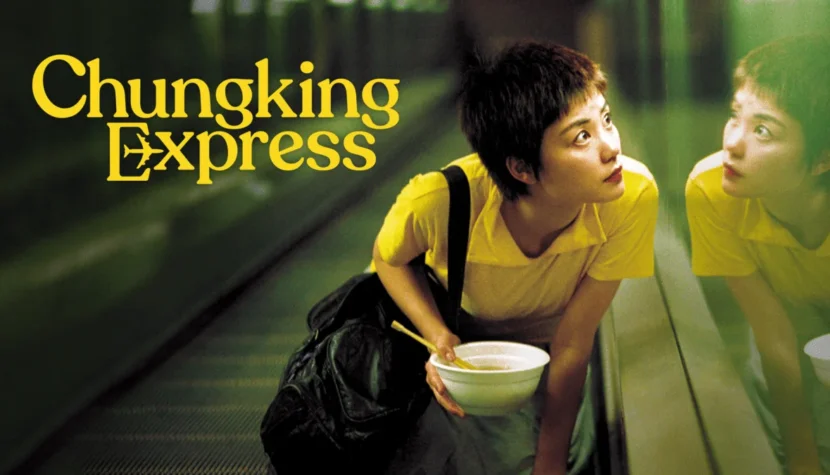
Not just any film, but a sequel to Chungking Express from 1994, which is set to take place in the near future in Chongqing. The story will focus on a woman and a man who decide to help fate along and find happiness in love on their own terms. It’s possible that the Hong Kong director might employ the same technique as in 2046 and tell the stories of the characters years later.
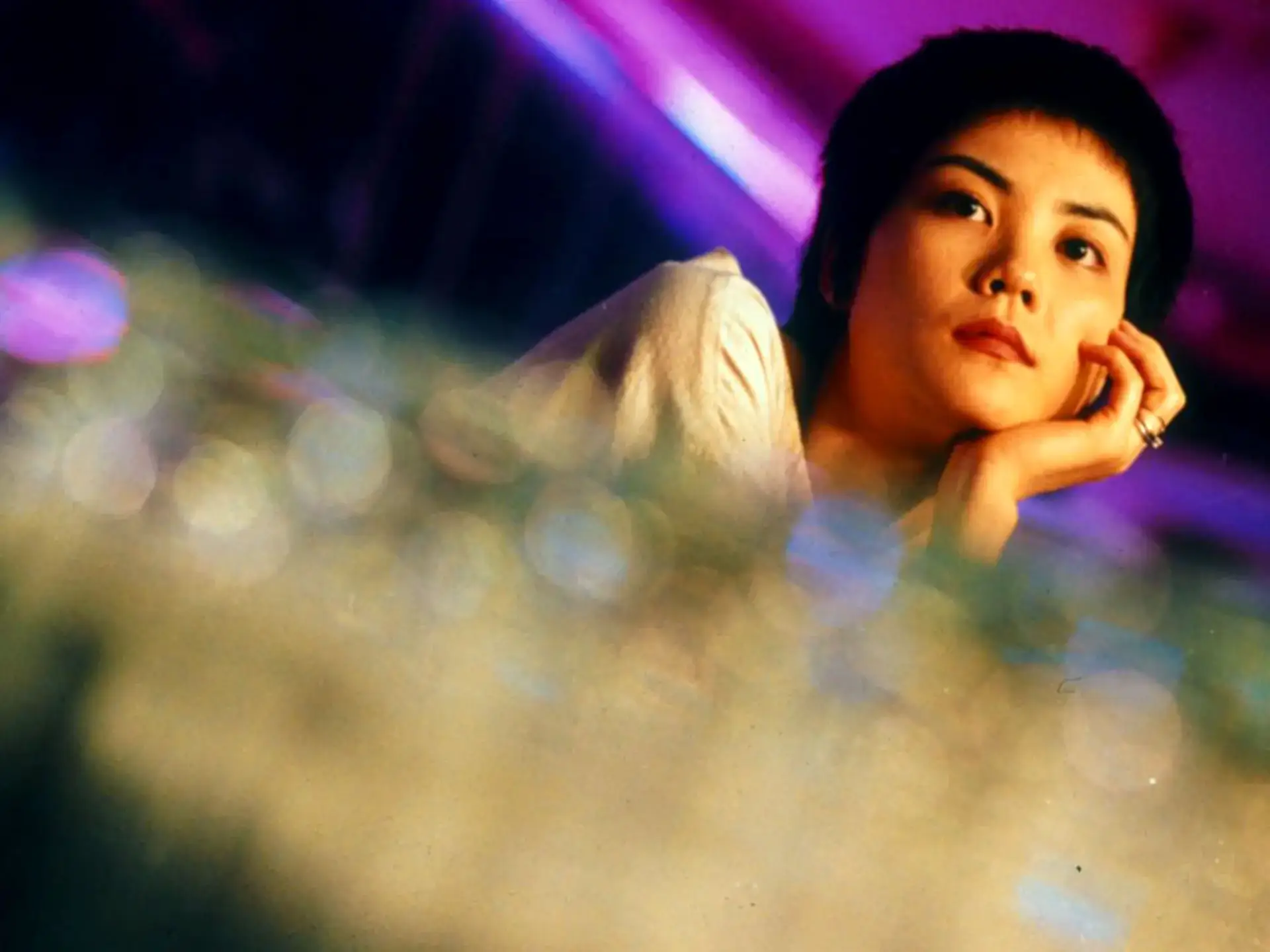
Chungking Express is essentially a film about people isolated in a multimillion-city, seeking solace and satisfaction in love. The protagonists from whom each story begins are two police officers suffering from unrequited love. Hong Kong comes to their aid, which, by the force of chance, introduces two unusual women to the protagonists. Women who not only help heal broken hearts but also leave a clear mark on their memory. Police officer 223 admits that although he spent one night with the woman in the wig, she will remain in his memory forever, and Police officer 633 waited for the return of the girl from California for a whole year, constantly listening to her favorite song and buying the bar where they met. The theme of separation and mourning is crucial in Chungking Express, from which the two novellas derive. Wong Kar-wai tells of coming to terms with change, transience, and the fading of feelings that lead to the breakdown of relationships. We meet Police officer 223 when he slowly begins to accept the cruel state of affairs. It is just one month since his beloved left him. This month, the officer spent on repetitive activities that fueled a spiral of stagnation and lethargy. He bought cans of pineapples every day, ran, and called his ex-girlfriend’s family daily, hoping for renewed contact. On screen, we see him wandering aimlessly around his apartment, the streets of Hong Kong, and repeating failures in subsequent phone contacts with women from his notebook. Only an exciting nighttime escapade with a mysterious girl in a blonde wig and the birthday wishes he receives in the morning on his pager help him break free from mourning. His memory ceases to be limited by the ruthless deadline of May 1st. At one point in the film, the man asks himself: In time, everything loses its importance. […] I wonder if there is something in the world that doesn’t lose its importance. He answers it himself at the end of the novella. On May 1, 1994, a woman wished me a happy birthday. For this reason, I will remember her for a lifetime. If you could put this memory in a can, it would have no expiration date. Or you would have to write: forever. The protagonist will keep the memory of the enigmatic woman from the bar for the rest of his life.
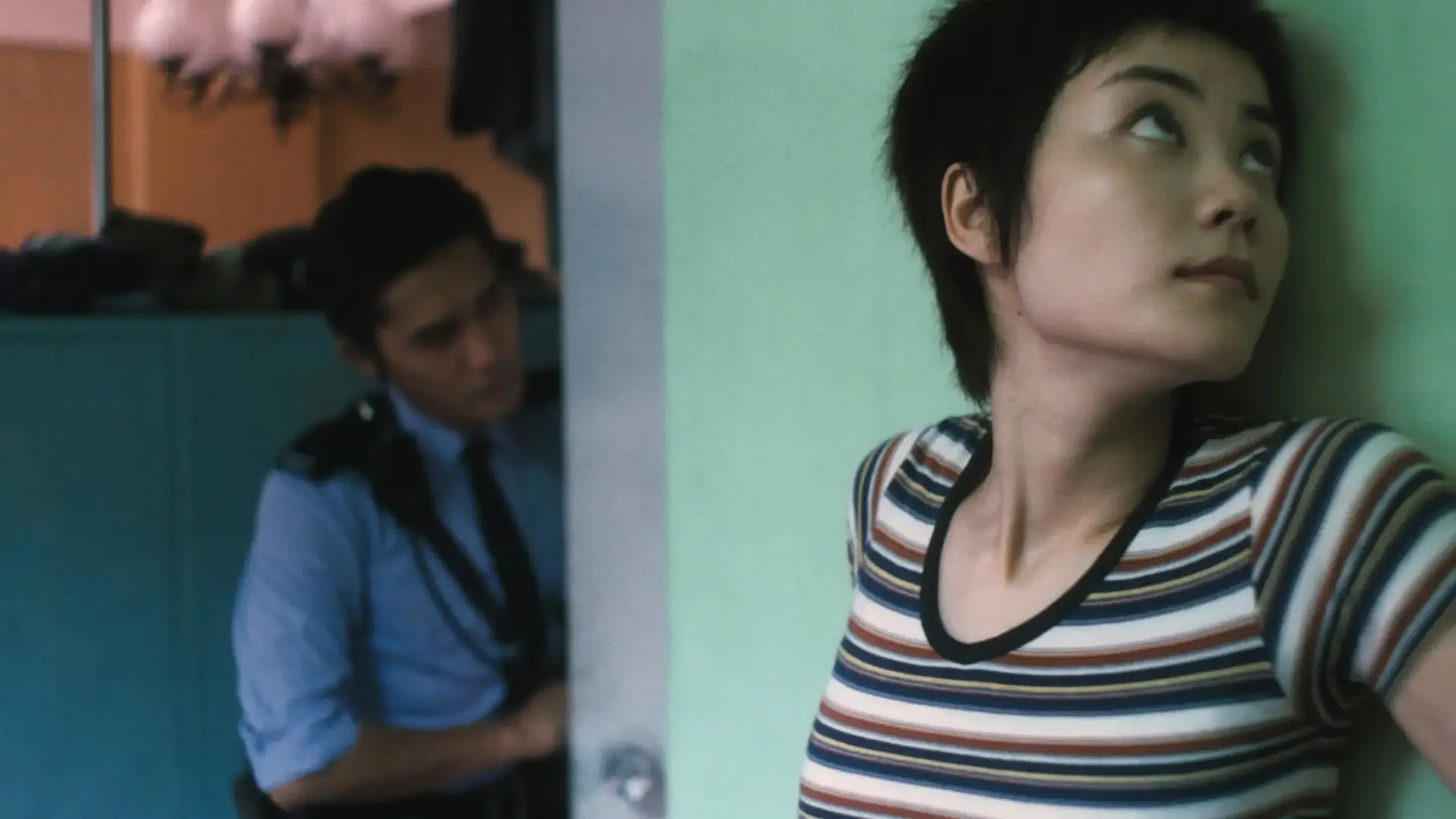
Similarly, Police officer 633 experiences a breakup. The overwhelming emptiness of his apartment and the belongings left by his ex, hiding in the closets like ghosts, do not help the man understand the motives of the woman who left him. The man falls into a routine, and subsequent days blur into one—lazy patrols of the streets, followed by solitary time spent in the apartment, where he engages in conversations about life with everyday objects. The cluttered psyche of the officer, filled with thoughts of the past, reflects the state of his apartment, whose mess only reminds him of the girl’s departure. With Faye taking care of the apartment, airing it out, cleaning it, and decorating it, the officer lifts his spirits, gathering the energy needed to rebuild his emotional life.
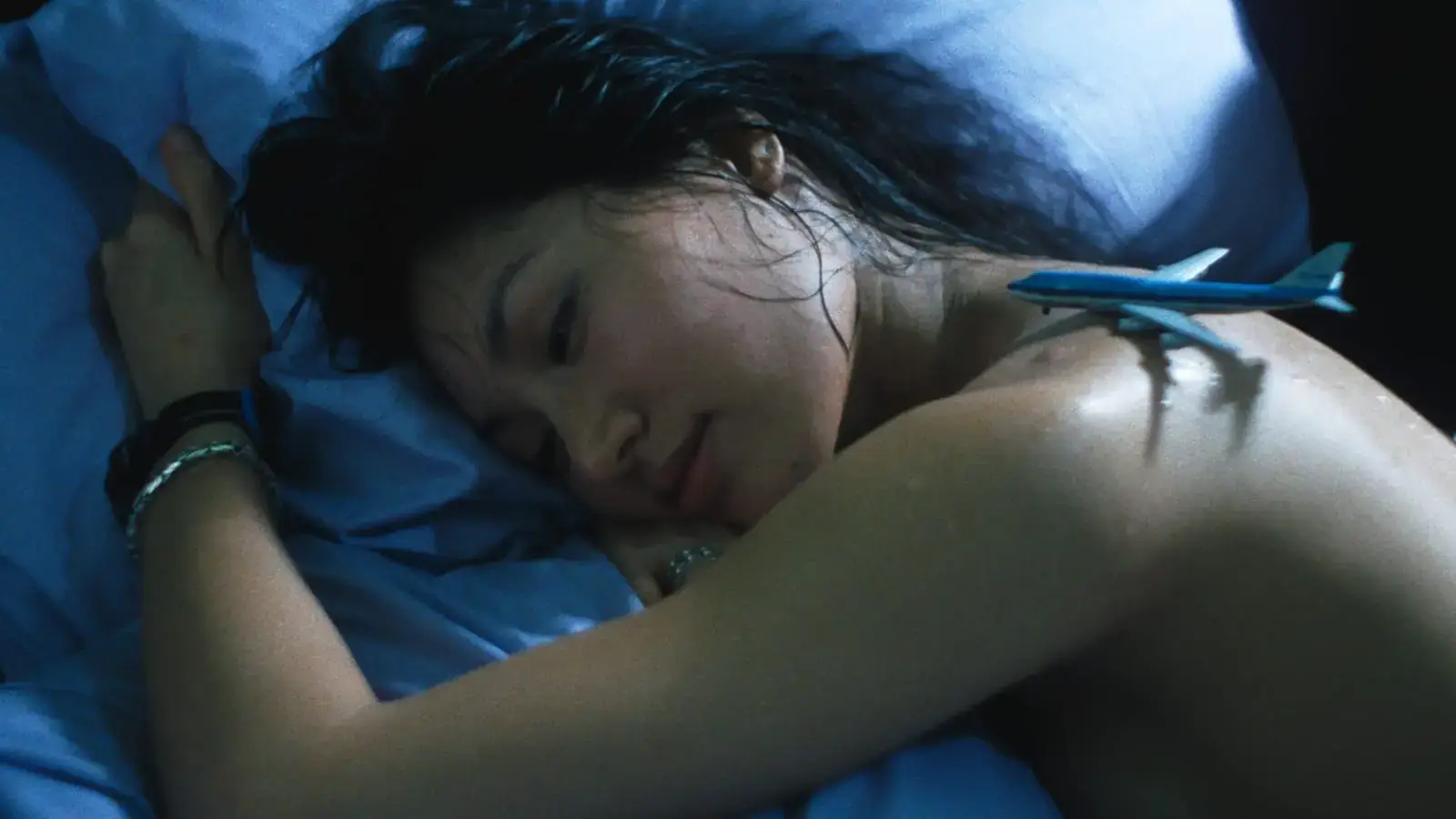
An interesting point of reference is also the food motif running through the entire film. Moreover, not only in Chungking Express are food and dishes important elements of the film. This also plays a crucial role in In the Mood for Love. This film was initially supposed to be a simple story about food, focusing on Hong Kong’s culinary culture. It turned out to be an intimate, poetic melodrama, yet food still plays a key role in the film. For example, the meals eaten by the lovers in silence or the outings of the main character for noodles, which daily took the form of an enigmatic ritual, being, alongside solitary walks to the cinema, the only reason for the beautifully dressed woman to expose herself to the public with her captivating femininity. It is similar in Chungking Express, but instead of the elegant dinners of the characters in In the Mood for Love, we have quickly eaten dishes in street bars, kebabs, and fish and chips wrapped in silver foil or quick snacks eaten in a room of a night hotel.
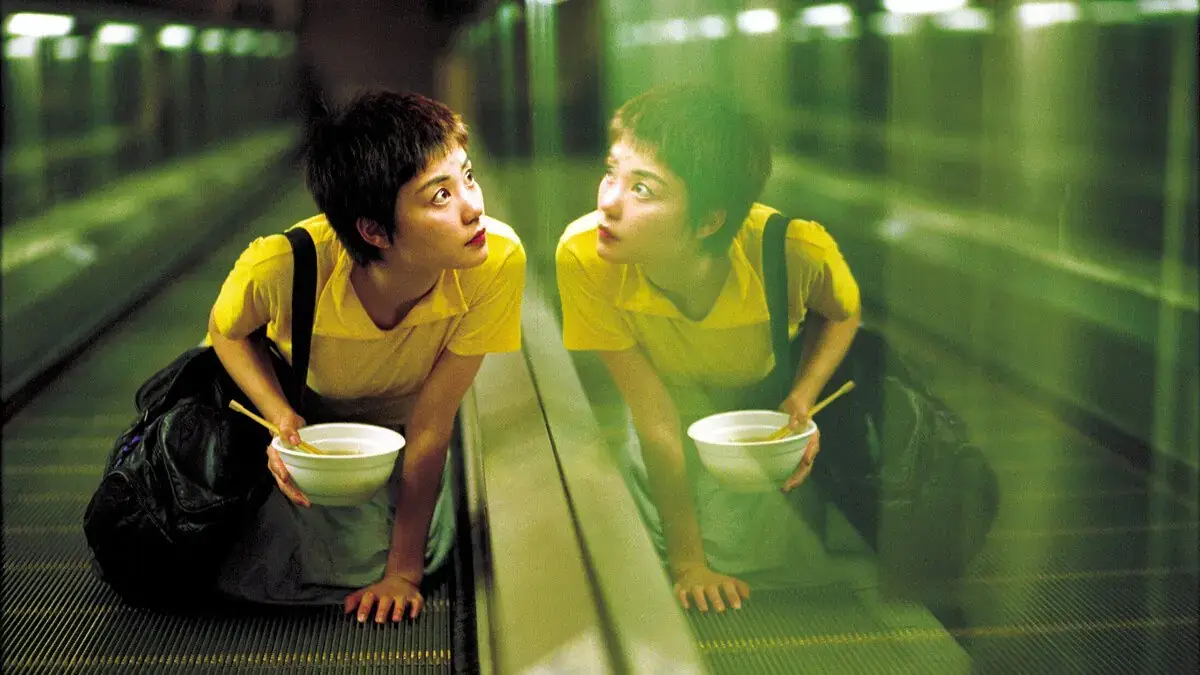
Both stories of the officers begin with the food theme. In the first novella, it is a bizarre ritual of buying cans of pineapples with the date of May 1st. When this date arrives, Police officer 223 spends a lonely evening gorging himself on 30 cans of pineapple, symbolizing a kind of reconciliation with the irreversible departure of the girl who loved pineapples. The first question the officer asks the woman in the bar will be, “Do you like pineapples?” The blonde woman in sunglasses does not share such an extreme attachment to this fruit as the man. Her words, heard from behind the frame, sound: Just because you know someone doesn’t mean you can keep them with you. People change. Someone today may like pineapples and something else tomorrow. This quote, although said by the protagonist of the first novella, perfectly relates to the situation of the officer and his girlfriend from the second novella. The story of Police officer 633 also begins with meals. Visiting the Midnight Express bar daily, the man buys dinners for himself and his girlfriend. It is invariably the chef’s salad. When the bar’s owner persuades the officer to try something new and buy fish and chips for the girl, this unusual departure from the norm becomes an impulse for the woman to leave. The salad was good until the fish and chips arrived, says officer 633. The pineapple quote from the first novella can be paraphrased: People change. Someone today likes the chef’s salad, and tomorrow they crave something entirely different. The officer 633’s partner probably concluded that if she could choose between varied dishes, she could similarly swap men.
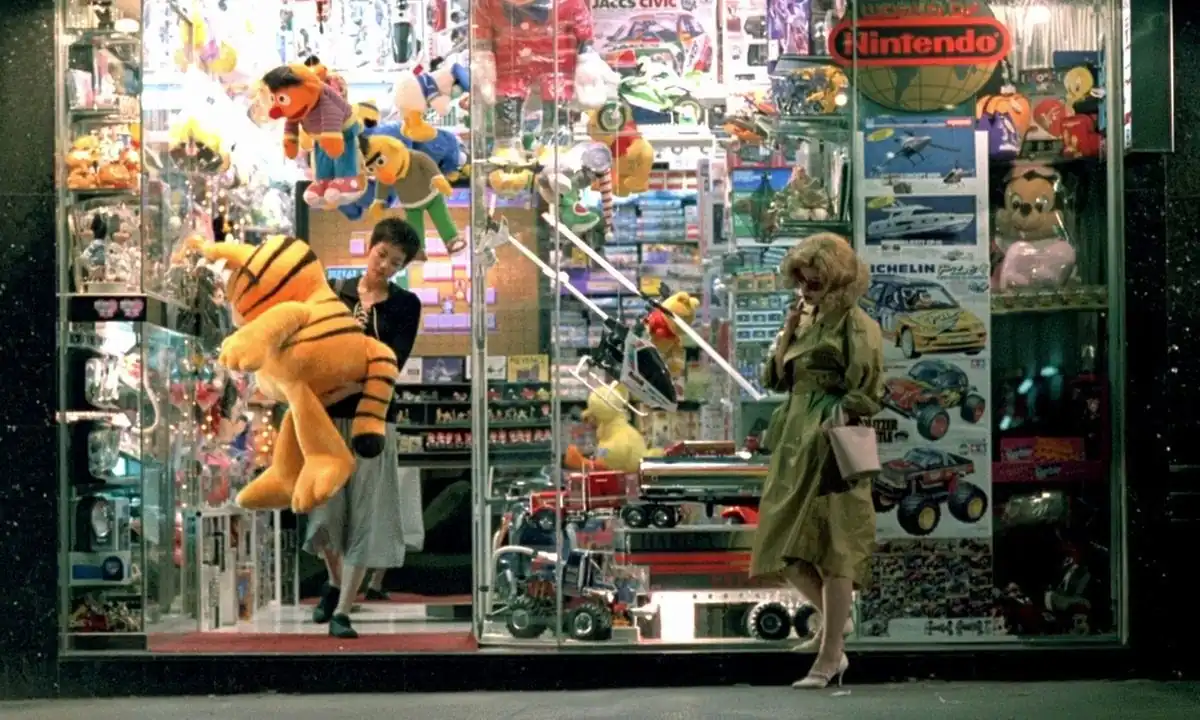
The attachment of the two men to strictly designated dishes (pineapples and the chef’s salad) perfectly reflects how conformist and unprepared for change they are. The replacement of old, soggy soap with new, round bars is perceived by Officer 633 as a hostile attack on his stable order of things. Such drastic changes, like the replacement of torn towels with fresh ones, took away the man’s ability to wallow in self-pity. He could no longer say that the towel cried with him, and the soap, like himself, was wasting away. The improvement of his surroundings suggested to the man that even though changes were happening around him, he must remain grounded. The entry of two women into the men’s world signaled an expansion of their stale and impoverished menu. As a line from Dinah Washington’s song What a Diff’rence a Day Made, which is repeatedly heard in the film, says: “Find romance on your menu.” The women, like battering rams, break the routine of the two men and open them up to new experiences. Officer 223 frees himself from obsessive longing for his ex, and Officer 633 opens up to a new relationship with Faye, agreeing to go with her wherever she wants to take him. It took him some time, just like learning to enjoy California Dreamin’. In Wong Kar-wai’s film, women are depicted as much more open to change, courageous, and adventurous. Their symbol is airplanes—the woman in the blonde wig kills her employer and flies out of the city, Officer 633’s ex-girlfriend is a stewardess, and Faye flies to California for a year and returns as a stewardess as well.
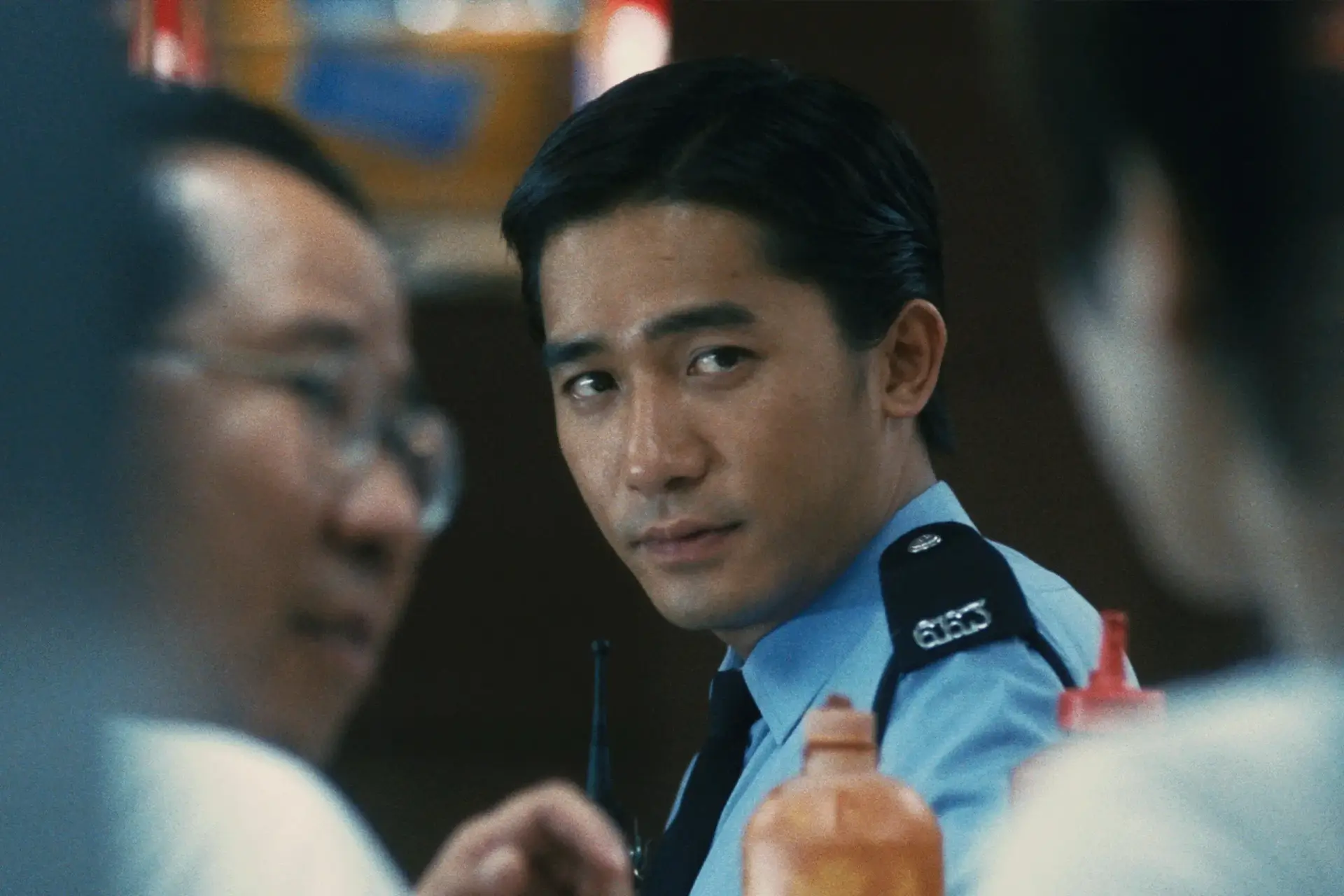
An essential element defining Chungking Express is also the subtle humor that creeps into these unconventional love stories. The world depicted in the film is somewhat like a reflection of the world we know, but seen in a distorted mirror. The characters do strange and absurd things, yet they accept them with stoic calm as if they were unremarkable actions. This refers, for example, to Officer 223, who buys cans of pineapples with the date of May 1st every day for 30 days. The fact that he eats all 30 cans in one evening is a charming sign of desperation after realizing that his beloved has definitively ended their relationship. Or Faye and her way of improving Officer 633’s mood after a breakup. When a person cries, a few tissues are enough. When a house is drowning in tears, you have to work hard, says Officer 633. Faye sneaks into the man’s apartment daily, cleans, decorates, replaces cheaper sardines with better ones, releases new fish into the aquarium, buys plush toys, changes the bedding, and hangs new shirts in the closet. The newly organized space suggests to the man that he has worked through the breakup and can enter a new relationship. His runway is ready for the next flight. Scenes where Faye delights in just being in her beloved’s apartment and the clueless reactions of Officer 633 to the changes in his apartment—conversations with the new bar of soap or pondering the new taste of sardines—are playfully absurd and comical. Nevertheless, they address serious matters, such as processing trauma or loneliness affecting many in million-strong cities. The subtly colorful absurdity and the playful subversiveness of the film, stemming from creating hope in the viewer for the connection of the two novellas or abandoning the crime theme in favor of a nostalgic melodrama, add freshness and eccentricity to the film.
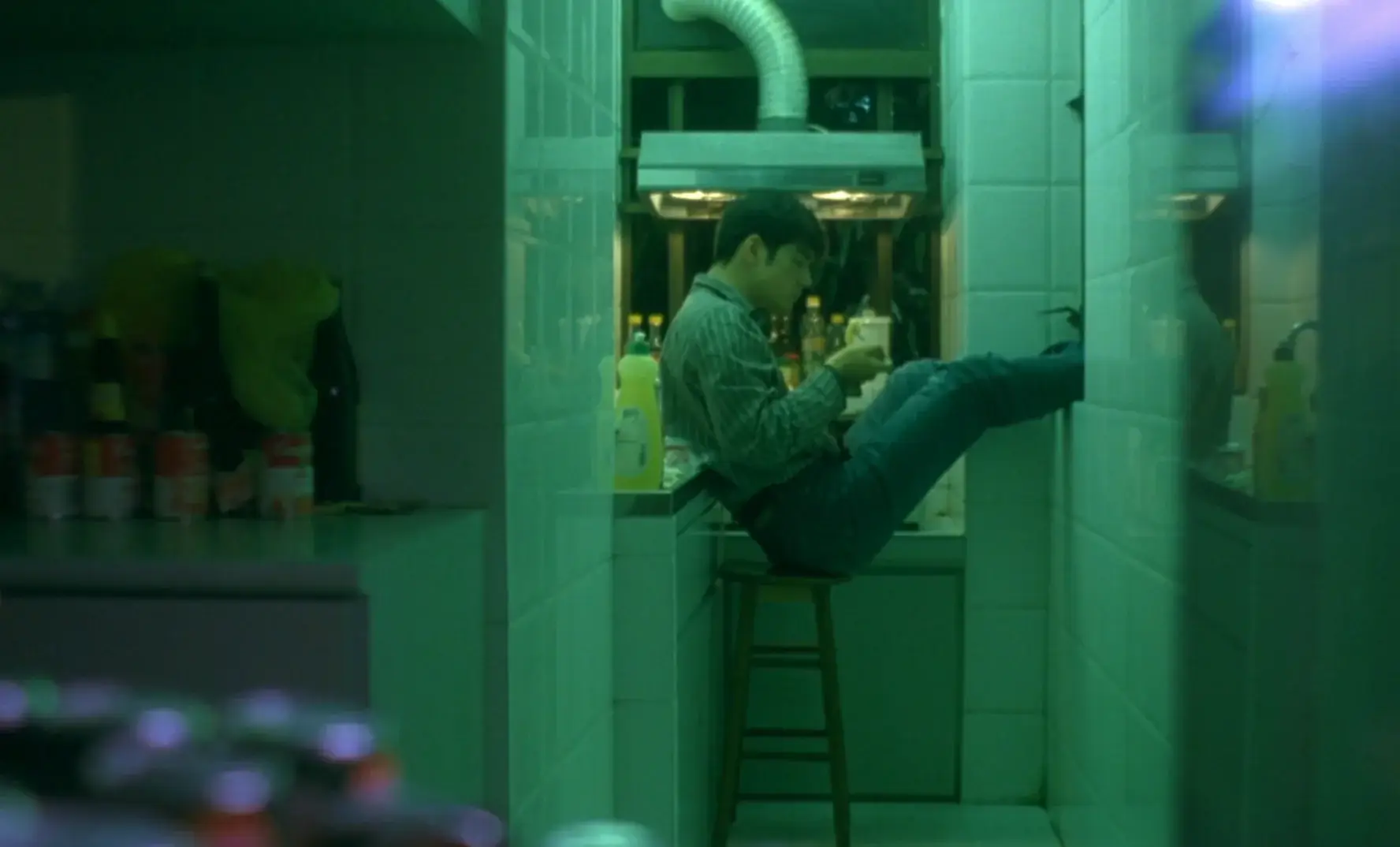
Chungking Express can be interpreted in various ways. The first is a story about solitary individuals anchored in bustling, multi-million cities. Although the characters surround themselves with many different people daily, they search in vain for kindred spirits. It’s all the more difficult to find such a thing on the crowded streets of Hong Kong, where anonymity and loneliness are natural, yet this happens to the main characters. Chungking Express is a portrayal of completely random and utterly unpredictable love. Love that happens to ordinary people trapped in their gray realities. The relationships formed between the pairs of characters are mere strokes of fate, yet they leave a noticeable mark that helps the characters accept changes in their love lives and prepares them for new ones. Therefore, the power of chance is such an important aspect of the director’s storytelling. Chance as a tool determining the fate of the main characters. Every day we brush past other people without knowing each other. Maybe one of them will become close to us someday? is an unintentional line that opens the film. Wong Kar-wai proves that great capricious love can hide even under the guise of the most obvious and mundane things, like buying fish and chips at a favorite fast-food joint. After all, an equally important, if not crucial, theme is the acceptance of changes in love. Obsessive love with its highs, lows, and states of piercing grief and loneliness. About the despair caused by the departure of another person and ways to come to terms with it. About changes, evolutions, and passing as inseparable elements of human relationships.
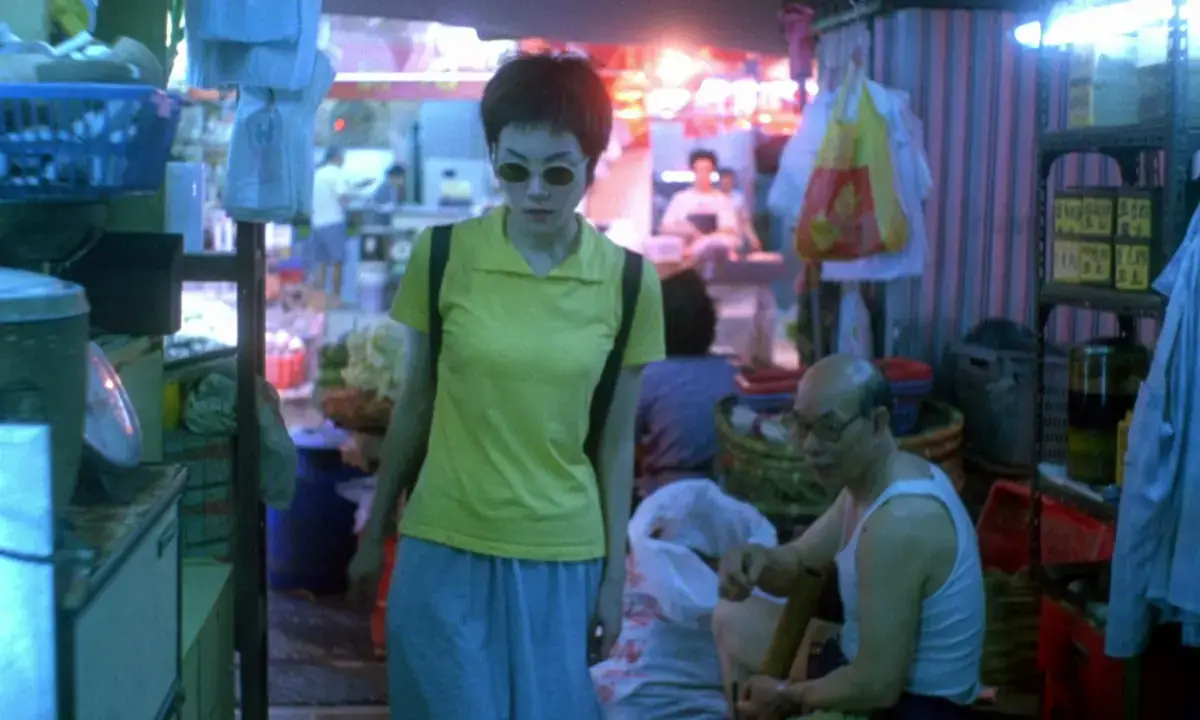
Wong Kar-wai’s film is for those incurable romantics who, like Margarita walking with a bouquet of hideous, unsettlingly yellow flowers, hope that someone will one day lay eyes on them in a line of street passersby, buy coffee at the same café, or show up in the same bar with alcohol that one night. The director suggests that if we are unlucky in love, we can always work at a kebab stand and leave ourselves in the hands of fate, looking out for our Officer 633.

